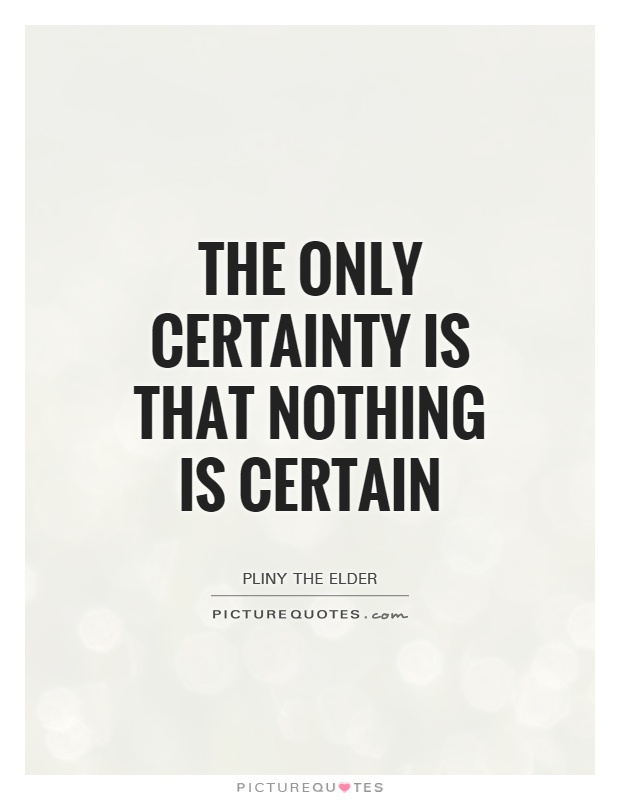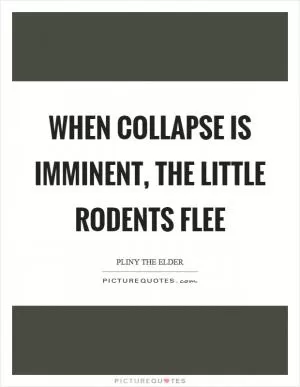The only certainty is that nothing is certain

The only certainty is that nothing is certain
Pliny the Elder, a Roman author, naturalist, and philosopher, is often credited with the famous quote, "The only certainty is that nothing is certain." This statement encapsulates the essence of Pliny's philosophical beliefs and worldview, which were deeply rooted in skepticism and a profound understanding of the limitations of human knowledge.Pliny the Elder was a keen observer of the natural world and a prolific writer, known for his encyclopedic work "Natural History." In this monumental work, he sought to compile and organize all knowledge of the natural world, from plants and animals to minerals and meteorology. However, despite his dedication to cataloging and documenting the world around him, Pliny was acutely aware of the inherent uncertainty and imperfection of human knowledge.
Pliny's skepticism can be seen in his approach to knowledge and truth. He understood that our understanding of the world is limited by our senses, our biases, and the constraints of language and communication. He recognized that what we perceive as reality is often filtered through our own subjective experiences and interpretations, leading to a fragmented and incomplete understanding of the world.
In the context of "The only certainty is that nothing is certain," Pliny is acknowledging the fundamental uncertainty and unpredictability of life. He understood that the world is constantly changing and evolving, and that our knowledge of it is always provisional and subject to revision. This recognition of the limitations of human knowledge is a central theme in Pliny's work, as he sought to challenge conventional wisdom and encourage a more critical and questioning approach to understanding the world.
Pliny's philosophy of uncertainty can also be seen in his views on the nature of truth and belief. He believed that truth is elusive and subjective, shaped by our perceptions and interpretations of the world. He understood that what we believe to be true is often influenced by our cultural, social, and personal biases, leading to a multiplicity of conflicting truths and perspectives.












 Friendship Quotes
Friendship Quotes Love Quotes
Love Quotes Life Quotes
Life Quotes Funny Quotes
Funny Quotes Motivational Quotes
Motivational Quotes Inspirational Quotes
Inspirational Quotes